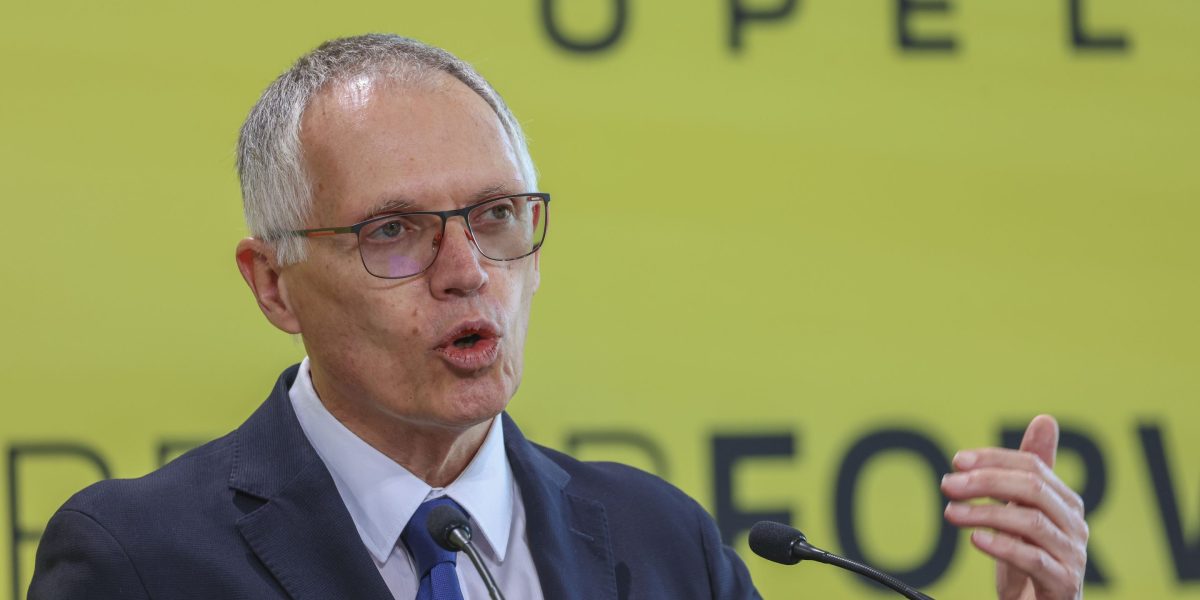

Stellantis NV will quit making vehicles in the UK unless the government eases electric-vehicle sales targets, just months after retooling one of its British plants to make only battery-powered vans.
The zero-emissions vehicle sales targets are unsustainable, Maria Grazia Davino, the company’s managing director for the region, told reporters Tuesday. The comments come as the UK heads for a general election on July 4 with both the incumbent Conservative as well as the Labour Party set to stick with current electric sales targets.
The UK has introduced rules requiring that 22% of each manufacturer’s new car sales be zero-emission this year, rising to 80% in 2030. For vans, 70% of new sales have to be electric by then.
With demand for EVs slowing, Davino said Stellantis would be forced to make discounts to meet the targets that risk fines of as much as £15,000 ($19,022) per vehicle for those failing to comply. Labour has committed to keeping the mandate in place should it win the general election next week.
Stellantis makes small electric vans across its Vauxhall, Citroën, Peugeot, Opel and Fiat brands at its site in Ellesmere Port, following a £100 million investment to turn the factory into an electric-only plant last year. The company also manufactures mid-size vans in Luton near London.
“We have undertaken big investments both in Ellesmere Port and in Luton and more to come,” Davino said at the SMMT International Automotive Summit in London. “But if this market becomes hostile for us we will enter an evaluation of producing elsewhere.”
It’s not the first time Stellantis has threatened to leave the UK. Last year, the company warned it would shut factories unless potential tariffs on its electric vans exported to the European Union were renegotiated. A deal between the EU and UK was ultimately struck before the deadline.
Stellantis is warning about the UK’s EV sales goals as consumer demand has slowed in recent months amid persistently high prices and patchy charging infrastructure. Davino said the targets rising through 2030 “could be very damaging.”
“If demand does not follow the offer, then we will be forced to take decisions — because we manage profit and loss, we manage operational decisions — that are impacting the UK,” she said.
When asked how long Stellantis, the UK’s best-selling van manufacturer, could continue without changes to the mandate, she said: “Less than a year.”
Stellantis sold almost 216,000 new cars in the UK last year, accounting for about 11% of the total market, including more than 100,000 under the Vauxhall brand.







![Graphic Design Trends for 2025 [Infographic]](https://whizbuddy.com/wp-content/uploads/2024/11/Z3M6Ly9kaXZlc2l0ZS1zdG9yYWdlL2RpdmVpbWFnZS9WaXN0YVByaW50X2dyYXBoaWNfZGVzaWduX3RyZW5kc18yMDI1Mi5wbmc-600x433.webp)







